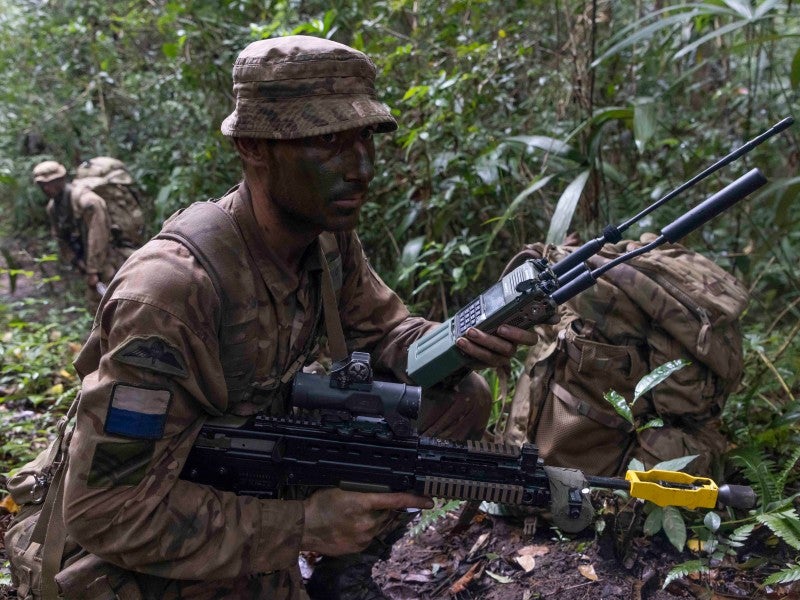
Airborne signallers from the British Army’s 216 (Parachute) Signal Squadron, Royal Corps of Signals have started testing the new multi-mode radios (MMR) in forest environments.
The MMR capability test is being conducted as part of an exercise, Mercury Canopy, in the jungles of Belize.
According to the army, dense jungles are one of the most challenging environments for conducting radio communications activities, as the moist and dense vegetation absorbs all the radio waves and hinders the line-of-sight transmission.
The Belizean jungle’s hot and humid conditions also pose radio handling and maintenance issues for the troops.
Information systems engineer sergeant Tom Gale said: “MMR has performed very well out in the jungle. It’s been a real challenge for us to learn how to use equipment that’s new to the army, with new capabilities. We’ve hit speed bumps but worked out how to use the equipment to get around them every time, and that’s been very rewarding.”
In November last year, the UK Government awarded a £90m contract to L3 Harris Communications Systems to deliver over 1,300 units of MMRs for the UK Armed Forces.
The MMRs will replace the British Army’s Bowman tactical radio systems. They will be used by the country’s multi-domain ground military forces, or will be mounted onto different land platforms and vehicles.
Furthermore, the new dual-channel radios will provide both voice and data communication capabilities over alternative networks.
216 (Parachute) Signal Squadron officer commanding major Liam Crane said: “The mesh networking capabilities mean that we can run applications so troops out in the Belizean jungle and back at our headquarters in Colchester are working off the same information at the same time.”








